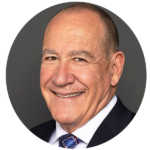The Gavel Rests: A Conversation with Our Retired Judges
As the sun sets on the illustrious careers of those who have upheld the scales of justice, they enter a new chapter where reflection and wisdom take center stage. We caught up with a handful of legal luminaries who have recently entered the hallowed halls of retirement—to glean insights from their years of service. Now, free from the constraints of the robe, they offer a rare glimpse into our judiciary’s inner workings, the weight of their duties, and their personal journeys.
We always wonder how it is to step into the role of a judge from being an advocate. What was it like for you to pull up to the courthouse for the first time as a judge?
 Hon. Barry Baskin: It was very intimidating at first when I was assigned to a criminal courthouse, as I came from a civil litigation background. It was also very satisfying having reached this point as a foreign born and trained attorney.
Hon. Barry Baskin: It was very intimidating at first when I was assigned to a criminal courthouse, as I came from a civil litigation background. It was also very satisfying having reached this point as a foreign born and trained attorney.
Hon. Anita Santos: It was surreal, exciting and intimidating, all at once, but the best part was finally getting a prime parking spot. Like when I got married (both times), I laughed, in near disbelief, every day for at least a month.
We also would like to know about the other bookend of your judicial careers. What was it like hearing your last calendar?
 Hon. Jill Fannin: Bittersweet and emotional. After more than 20 years on the bench, it really hit me that I would not be working with my fantastic staff anymore and I would no longer be part of the ritual of court.
Hon. Jill Fannin: Bittersweet and emotional. After more than 20 years on the bench, it really hit me that I would not be working with my fantastic staff anymore and I would no longer be part of the ritual of court.
Judge Santos: Sad at the loss of the daily connections with colleagues and staff that became like family, a huge stress lift, and also filled with the excitement of the next phase of life.
Judge Baskin: It was sad because I enjoyed my civil assignment and calendar. It was hard making the decision to walk away from my colleagues, staff and counsel I had come know over many years.
Here is another doozy that came from our readers. What was your favorite assignment on the bench? Why?
 Hon. Leslie Landau: I loved being a judge, and enjoyed every assignment I had. But family law and juvenile were my most meaningful assignments. Both were intensely people-focused and forward-looking: the judge’s task was to understand family challenges, and help families address them and move into a more productive future. It required a unique mix of head and heart, instinct and intellect. The cases could be difficult, but it was immensely satisfying to make a difference in people’s (especially children’s) lives.
Hon. Leslie Landau: I loved being a judge, and enjoyed every assignment I had. But family law and juvenile were my most meaningful assignments. Both were intensely people-focused and forward-looking: the judge’s task was to understand family challenges, and help families address them and move into a more productive future. It required a unique mix of head and heart, instinct and intellect. The cases could be difficult, but it was immensely satisfying to make a difference in people’s (especially children’s) lives.
Judge Santos: Having the benefit of hindsight, I have a three-way tie for my favorite assignment: family law, felony criminal trials and domestic violence. Each of those assignments has a profound impact on the parties involved (and their children) and is a critical service.
Judge Fannin: My assignments in criminal, juvenile, family, civil and PJ, were all great in their own ways. My favorite part of each was trying to work things out “in the back” with the lawyers, parties or staff. There were lots of opportunities for collaboration and settlement in every assignment but especially in civil, family and juvenile.
Judge Baskin: Civil litigation because counsel are so professional, courteous and well prepared with very few exceptions. Resolving my harder civil cases before trial was particularly rewarding.
Did anything particularly memorable (and not otherwise confidential) happen during your career?
Judge Baskin: I was the Presiding Judge when COVID first broke out. I will never forget the long hours researching what to do as nobody had ever done this before. We were the first county in the state to totally close the court, except for emergency matters. Working with the Chief Justice, the Judicial Council and all the Presiding Judges to find a way to reopen the courts and restart jury trials was especially challenging but rewarding.
 Judge Santos: First, the pandemic and navigating and conducting hearings and jury trials, alongside family demands–including a back porch student hub. Second, an irate, explosive defendant in a criminal trial that resulted in the bailiff and I physically restraining him when all others fled the courtroom. Third, the most sincere and heartfelt gratitude of counsel, the accused, victims, and the jurors at the conclusion of a trial.
Judge Santos: First, the pandemic and navigating and conducting hearings and jury trials, alongside family demands–including a back porch student hub. Second, an irate, explosive defendant in a criminal trial that resulted in the bailiff and I physically restraining him when all others fled the courtroom. Third, the most sincere and heartfelt gratitude of counsel, the accused, victims, and the jurors at the conclusion of a trial.
Judge Landau: There were so many memorable moments. Some were amusing (like the DUI and hit-and-run trial, with jurors named Fender and Bender). Some were inspiring (like the hard work parents in juvenile dependency court did to reunify with their children). Some were agonizing (like the victim impact statements in sexual assault and homicide cases). Being a judge meant having a front row seat to humanity, in all its complexity, heartbreak and hope.
What are you doing to fill your time these days?
Judge Fannin: I am working at JAMS. I worked there as a mediator before I joined the Bench, and I am thrilled to return.
Judge Baskin: Working as a mediator and arbitrator at JAMS is satisfying, being the culmination of almost 50 years of learning the law.
Judge Landau: Judging was often like drinking out of a firehose: the volume of cases and pace were punishing, and I always wished I had more time. I was ready for a change, but still love the challenge of resolving legal issues, working with fine attorneys, and helping people solve problems. So, I have joined ADR Services, Inc., doing mediation, arbitration and private judging. I love that I now have the luxury of time to devote to a smaller docket of cases, and give parties and issues the attention they need and deserve. And, of course, the time to hike with my dog.
Judge Santos: Traveling, Pilates, daily Uber services for our teen daughter for three more months, working (a little) at ADR Services, Inc., doing family law mediating and private judging.
Here is a loaded question. What, if anything, would you do differently?
Judge Baskin: Nothing. I have no regrets and only very fond memories.
Judge Santos: I would take the lunch -time walk more frequently, learn and master artificial intelligence as a tool to assist with our court administration, court access and research, and I would step out of my comfort zone and try a new assignment (e.g., probate).
What advice would you give to attorneys that maybe you couldn’t give while you were a judge?
Judge Santos: First, enjoy what you do, or do something else. Second, your reputation for integrity, professionalism and preparedness is everything. Third, have a family (pets count), and balance. Fourth, surround yourself only with people that support and inspire you.
Judge Baskin: Always seek feedback on your performance whenever you can. You will be surprised by what you can learn but most counsel feel too vulnerable or don’t think they need the feedback.
Judge Landau: Be the grease, not the grit, in the wheels of justice. Don’t get sucked into your client’s drama, or create drama yourself: Cooperate with opposing counsel, facilitate discovery, manage client expectations, solve problems creatively, and avoid ad hominem attacks on the opposing party and counsel. And remember that judges are busy: Resolve issues that really don’t need judicial determination, and as to those matters that do, distill your facts and arguments so judges have what they need (and no more than they need) to quickly understand the issues and decide them well.
Judge Fannin: Don’t forget to have fun! We have serious, stressful jobs but life is sweeter when you make room to see the humor in a situation and enjoy yourself with colleagues.